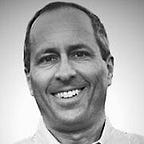Never Tell People What You Do
It’s a simple question, and you’ve probably answered it hundreds of times. “What do you do?” If you’re like most people, you probably get the answer dead wrong.
Your standard reply is probably a factual description of your current job.
The right answer is: what you WANT to do.
The best way to pick up this habit is to take a trip to Los Angeles. Ask your cab driver what he does. “I’m a screenwriter,” he could say, “Working on a thriller about two school children who stumble onto a plot to blow up the Hoover Dam.”
When you go out to dinner, ask the same question of your waitress. The odds are 50/50 she’ll say, “I’m an actress.”
24-year-old interns are “directors”. 44-year-old ad agency execs are “producers”. Everyone talks about their aspirations, not what paid the rent this month.
Now some may argue that Los Angeles is La La Land, and there is nothing to be learned from people who are dreaming big and perhaps spinning their wheels. But I disagree.
You are probably much closer to your goals than an aspiring Hollywood actor. The main thing standing in your way is your willingness to say what you want.
An earlier version of this article appeared on LinkedIn, where over 300 million people have posted profiles that summarize their professional career. You probably have one, too. (If not, think about the last time you sent someone a cover letter or inquired about a job.)
Which of these best describe what you say in your profile or pitch?
a. What you’ve done
b. What you want to do
One of the main purposes of LinkedIn is to help you discover career opportunities, so you might guess that is the one place where people say what they want to do.
You would be wrong.
Most people say what they have done.
I’m not telling you to lie. I’m telling you to be bold enough to share what you want. Your resume says what you’ve done. That’s in the past.
When I was in the training business, an executive asked one of my colleagues whether we had a two-day training program customized for his industry. “Yes, we do,” said my colleague, who then spent the weekend creating such a program. He combined initiative, imagination and effort… and won a new client.
Not to get too personal, but we have a running battle at this moment in my household. My 22-year-old son is moving to Los Angeles to become a TV writer (ironic, isn’t it?). My wife, who is the practical one in our relationship, wants Jeff to tell everyone, “I’ll take any job in TV.”
I want him to say again and again and again, “I want to write for TV.”
Why would you give up your dream at 22?
(Not to worry… Jeff won’t.)
The happiest and most successful people nearly always have a sense of what they want to do next, or of how they wish to grow. They are able to say where they are headed, instead of where they have been the past few years. If you met Elon Musk, I bet he wouldn’t talk much about Paypal; he would probably tell you about how he plans to make space flight routine.
When you say what you want, you give others the opportunity to help you make your dreams come true.
When you are too embarrassed or cautious to say what you want, you make it impossible for others to help you.
Be bold. Be brave. Be honest.
Whenever humanly possible, say what you want, not what you do.
If you like this article, please recommend it to help others find it!
